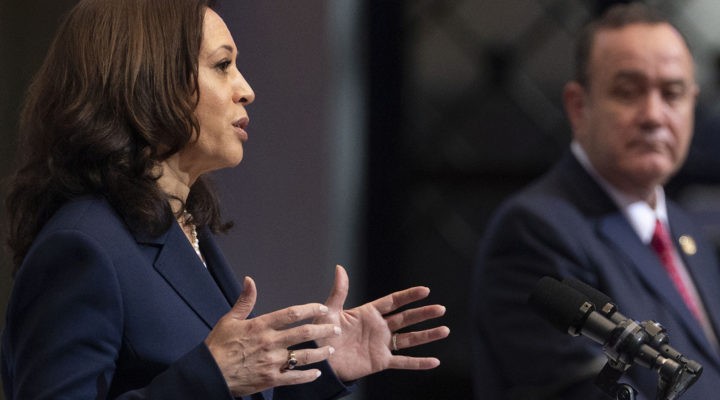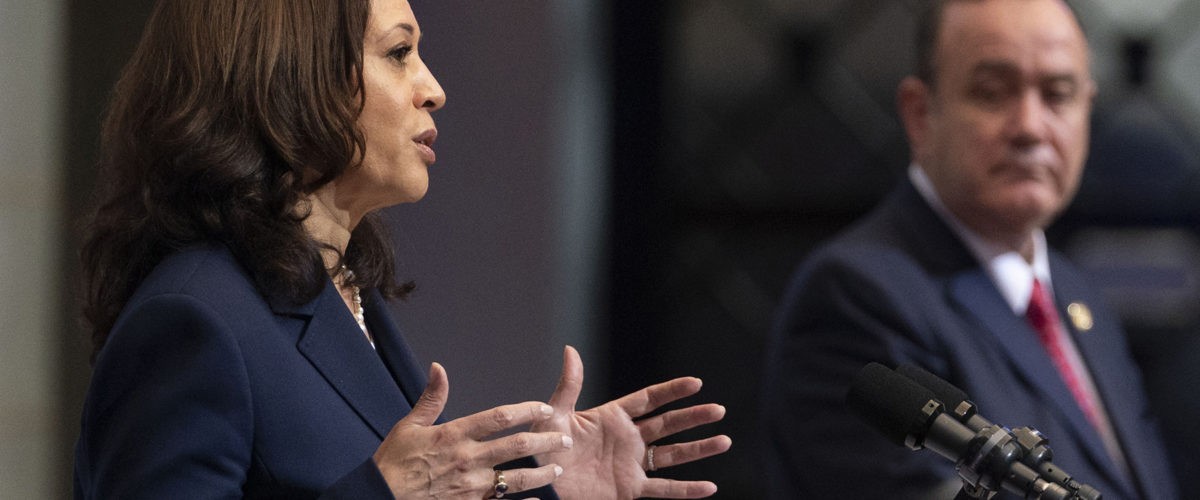As Vice President Kamala Harris headed to Guatemala this week as part of a campaign to address the root cause of the surge in migration to the United States, she was among recipients of a letter from a group of Christian leaders encouraging such an approach.
In a June 1 letter to President Joe Biden, Vice President Harris and members of Congress, the Evangelical Immigration Table expressed concern about the large number of immigrant families and unaccompanied children seeking refuge at the U.S.-Mexico border and insisted on deeper, longer-term actions to alleviate the systemic causes of the suffering.
Those approaches could include providing funds to faith-based and other non-government organizations that combat poverty in Central American nations where many U.S.-bound immigrants originate, the letter suggests.
“We are writing to urge you to leverage the influence and resources of the U.S. government to address the root causes that fuel emigration from Central America’s Northern Triangle region (Guatemala, Honduras, El Salvador),” according to the letter signed by the leaders of nine major faith-based humanitarian organizations and denominational groups.
“This response should be holistic in addressing both the driving factors of this migration and the U.S. immigration policies that govern an immigrant’s arrival. To address the root causes of migration in Central America, a resilient development approach must be embraced which recognizes the different risks and vulnerabilities the countries face.”

Stephen Reeves
Those risks and vulnerabilities include government corruption, organized crime, hunger and extreme poverty, said Stephen Reeves, executive director of Fellowship Southwest and director of advocacy for the Cooperative Baptist Fellowship, a national partner organization of the Evangelical Immigration Table.
“The stories you hear are of these environments that are rife with corruption and violence, and you also have environmental and natural disasters driving people north,” he said.
Reeves welcomed the recent letter for highlighting not only the need, but also the role faith-based groups can play in addressing those conditions with adequate funding. By helping finance ministries that work with the hungry and poor, the U.S. government could avoid paternalistic involvement in a region where it is distrusted and keep financial resources out of the hands of sometimes inept or corrupt governments, he said.
And the need is urgent, Reeves added. “If we don’t do something, folks are going to have to keep coming. We are not going to change the flow without changing the environments that are causing people to flee in the first place.”
“We are not going to change the flow without changing the environments that are causing people to flee in the first place.”
The letter was released amid a swirl of other revelations and developments around the nation’s immigrations policies and practices.
In late May, the U.S. Department of Homeland Security’s inspector general revealed that, during the Trump administration, Immigration and Customs Enforcement authorities deported nearly 350 immigrant adults involuntarily without their children, who had been detained separately. Immigration advocacy groups were outraged by the news.
Days later, the Biden administration terminated Donald Trump’s widely condemned Migrant Protection Protocols program. Also known as “remain in Mexico,” the policy required asylum seekers to remain south of the border until their cases could be heard in the U.S., usually after many months of delay.
In its letter, the Evangelical Immigration Table notes the pain immigrants have experienced from their ordeals getting to the border: “While we urge the U.S. government to treat these individuals and families with compassion and to ensure they receive the protections available to them under U.S. law, we also lament the reality that so many feel such desperation as to flee their homes, communities and countries.”
In part, the answer lies in enabling religious and other non-governmental organizations already working in Central America to more fully treat the social and political justice challenges throughout the region, the letter says.
“Faith-based organizations play a vital role in reducing poverty and expanding opportunity and should be considered vital partners to the U.S. government in these efforts. In addition, faith-based organizations have unique relationships with local churches, providing unmatched access, building trust among local communities and building resilience among community members.”
“Offering foreign assistance to come alongside resilient Central Americans working to help their own countries flourish pays dividends.”
The financial cost of such aid would be offset by a reduction in funding needed to handle immigration crises at the U.S.-Mexico border, the faith leaders contend. “Offering foreign assistance to come alongside resilient Central Americans working to help their own countries flourish pays dividends, not only by demonstrating the goodwill of the United States and protecting human lives made in God’s image, but also reducing the need to spend taxpayer money on caring for unaccompanied children and processing large numbers of asylum seekers who arrive at the U.S. border.”
The letter adds that addressing issues like crime, corruption, hunger and poverty can build the kind of hope in local communities that, in turn, might dissuade Central Americans from needing to migrate.
“Our government can play an essential role in addressing corruption and providing assistance, which is both a reflection of the generosity and compassion of the American people — including many motivated by their Christian faith and convictions — and in our own national interest as we seek a more humane, orderly immigration process,” the leaders say. “An application of these holistic solutions will inspire a reality where no one will be forced to emigrate to the U.S. under duress.”
Signatories to the letter include Bethany Christian Services, the Council for Christian Colleges & Universities, the Ethics and Religious Liberty Commission of the Southern Baptist Convention, Faith and Community Empowerment, National Association of Evangelicals, National Latino Evangelical Coalition, The Wesleyan Church World Relief, and World Vision.
Related articles:
Coalition of evangelical Christians advocates third way on immigration reform
Biden administration rushing to strengthen DACA, official says
A bipartisan immigration bill has been introduced, but will it garner bipartisan support?
What would happen if immigration policies were based on majority opinion in the U.S.?
We cannot now close our border to those fleeing the horror we helped create | Analysis by Chris Conley


